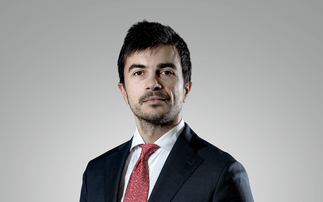We asked George Crowdy, co-manager of Royal London Asset Management's new global sustainable equity fund, how he balances financial and sustainable goals
RLAM's new fund, a recent addition to its long-established sustainable range, follows the range's investment process, "the crux of which is our consistent scorecard approach," says Crowdy. "50% of the score is given to sustainable factors, 50% to financial," he says, "and we believe we can find mis-valued opportunities in both dimensions."
Companies must be above average in both to be eligible for investment. "So companies that have a negative impact on the world like tobacco, armaments or fossil fuel extraction are quickly screened out because they don't score highly enough on the sustainable side", he says.
Firms with products that make a positive impact don't get a free pass. "Our sustainable score is split equally between corporate governance (G) factors, and environmental and social (ES) factors that look at the products and services of a company and its operations. So even a renewable energy company needs to be above average on governance to get through," he says.
But Crowdy thinks the transition to a sustainable economy means much more than building wind turbines. "Had it not been for the development of the cloud and energy-efficient data centres, the vast majority of developed economies would not have been able to function during the [Covid-19] crisis," he says. He argues that companies providing solutions to a range of global problems are likely to have more attractive financials by virtue of higher, more durable revenue growth.
The sweet spot is "finding companies where both products and operations provide positive impact", he says, citing a sportswear brand that facilitates physical wellbeing but also leads in sustainable manufacturing processes and new forms of recyclable product. "Our team really does believe that companies addressing the world's greatest challenges should be more interesting, less risky places to invest," he says.
For professional clients only.
Past performance is not a reliable indicator of future results. The value of investments and the income from them is not guaranteed and may go down as well as up and investors may not get back the amount originally invested. The views expressed are the author's own and do not constitute investment advice. For more information on the fund or the risks of investing, please refer to the fund factsheet, Prospectus or Key Investor Information Document (KIID), available via the relevant Fund Information page on www.rlam.co.uk.
All information is correct at May 2020 unless otherwise stated. Issued May 2020 by Royal London Asset Management Limited, Firm Reference Number: 141665, registered in England and Wales number 2244297; Royal London Unit Trust Managers Limited, Firm Registration Number: 144037, registered in England and Wales number 2372439; RLUM Limited, Firm Registration Number: 144032, registered in England and Wales number 2369965. All of these companies are authorised and regulated by the Financial Conduct Authority. Royal London Asset Management Bond Funds Plc, an umbrella company with segregated liability between sub-funds, authorised and regulated by the Central Bank of Ireland, registered in Ireland number 364259. Registered office: 70 Sir John Rogerson's Quay, Dublin 2, Ireland. All of these companies are subsidiaries of The Royal London Mutual Insurance Society Limited, registered in England and Wales number 99064. Registered Office: 55 Gracechurch Street, London EC3V 0RL. The Royal London Mutual Insurance Society Limited is authorised by the Prudential Regulation Authority and regulated by the Financial Conduct Authority and the Prudential Regulation Authority. The Royal London Mutual Insurance Society Limited is on the Financial Services Register, registration number 117672. Registered in England and Wales number 99064. Telephone calls may be recorded. For more information please see our Privacy Notice at www.rlam.co.uk. AL RLAM P 0015











